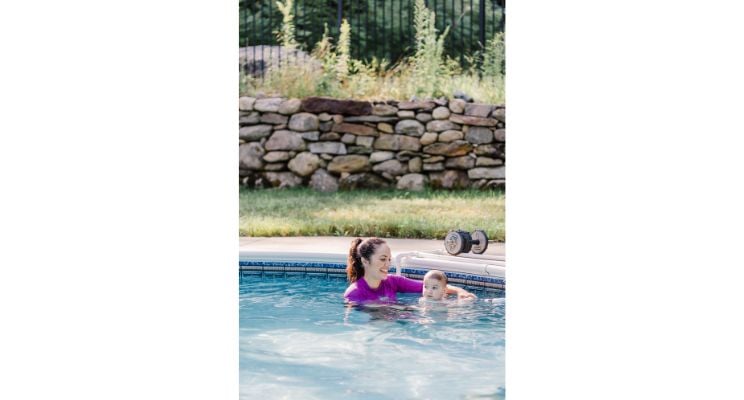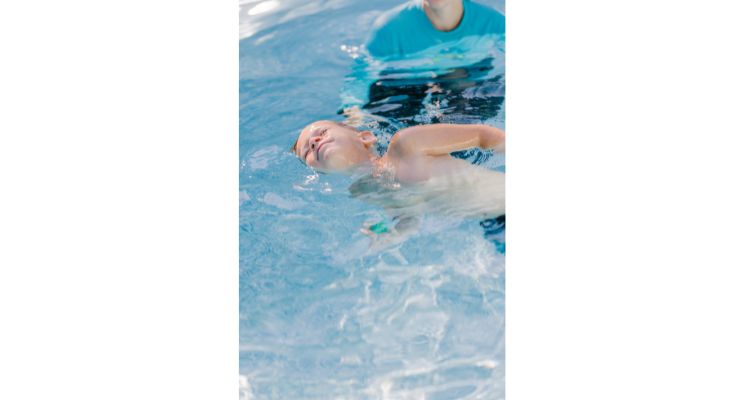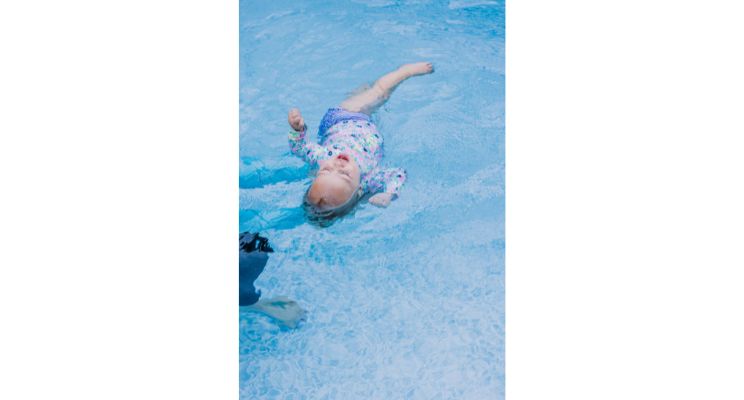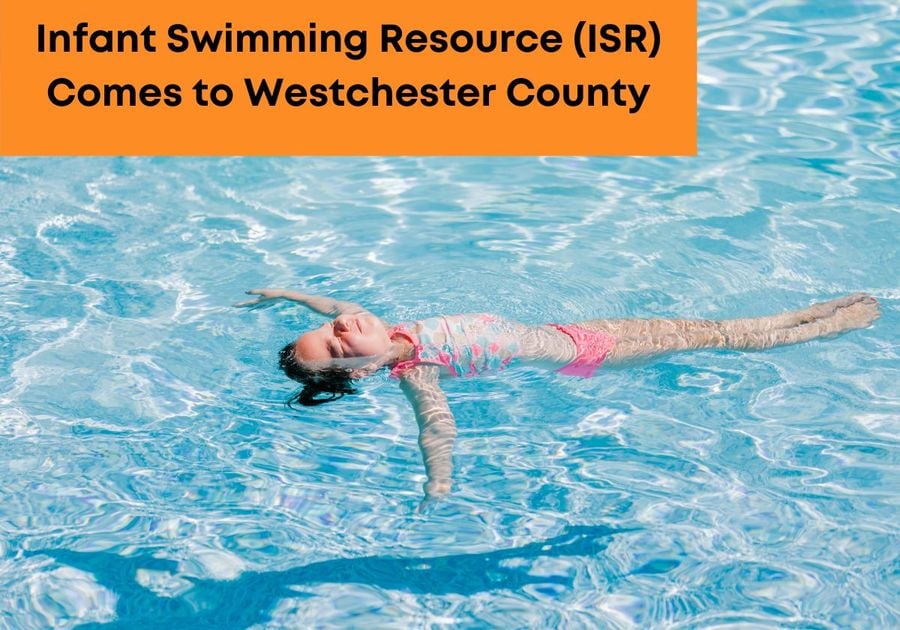We are a water family. Early morning swim practices in a cold pool were a part of my life from childhood through high school with coaching, teaching, and lifeguarding in between practices. My husband volunteers for the Coast Guard Auxiliary. We’d have a nautically themed house if I was on board for it.
Researching swim classes began while my babies were still in utero. This was a skill I was determined they would have. It proved to be more challenging to find what I was looking for and in speaking with other families, I found I was not alone in this challenge. When I learned about Infant Swimming Resource, I went down the rabbit hole of research trying to find instructors locally, with no success. Recently, I was excited to see Brianne Keefe’s name come up in a local business thread. She was in the initial phases of offering ISR to our community and I was thrilled to be able to speak with her further about her passion for water safety and self-rescue skills. While I am admittedly an anxious person, it is also true that drowning is the leading cause of death for children 1 - 4. The more preventative measures I can put in place for my children, the more confidence I can have around water. ISR is one of those measures.
 |
Infant Swimming Resource (ISR) operates under the mission statement, “Not one more child drowns.” It is a highly individualized approach to teaching aquatic safety that requires much specialization and training on the part of the instructors. The program is also a rigorous one that can take up to a year to complete, and includes not only CPR and first aid training, but anatomy components, and a good deal of child psychology.
ISR lessons can begin much earlier than traditional swim lessons, at only six months of age. If your baby can sit independently, they are likely ready to begin the training. At this age, the goal is teaching the babies Roll-Back-to-Float. Older children, around ages 1 - 6, start with the Swim-Float-Swim technique. Both programs teach the essential self-rescue techniques of holding their breath underwater, and staying afloat until help arrives or they can reach the safety of the shore, or side of the pool.
Westchester local Brianne Keefe, saw the need for this type of instruction in our county. She had an up-close view of its success in seeing her sister-in-law, also a certified instructor, bring it to her Massachusetts community. Training is limited in our area and required Brianne and her family to travel to New Hampshire to take part in a training cohort led by master instructors over this past summer to finish her certification.
In working to build her business, she saw firsthand how much misinformation there was about this technique and how many people were completely unfamiliar with it.

So what should we know about ISR?
-It is individualized. Brianne is highly trained to respond to what each child presents. This is not the standard learn-to-swim in a prescriptive program. It teaches self-rescue and survival skills.
-It is intensive. The program consists of short (a maximum of 10 minutes), frequent (5 times per week) lessons for approximately 6 weeks.
-It is carefully sequenced. What people often see in the media is the last step, of babies in the water turning to float independently. This is the result, however, of weeks of practice on the building blocks that bring the children to this step. Getting comfortable in the water, feeling their natural buoyancy, holding their breath - these are the precursors.
-It is taught with warmth, nurturing, and lots of positive reinforcement. This is not traumatic for the children. There may be some crying initially, as there is with many new things that children try. It is not a program without challenges, and the students rise to the expectations, often surprising themselves and their parents with their resilience and self-efficacy.
-It is a family affair. The more involved the parents are in the process, the more successful the child can be. Many parents bring their own fears to the program, and often families that seek this specialized instruction out do so because of loss or water trauma. Brianne, and ISR instructors in general, work with the entire family to build comfort and trust around these skills. Much time is spent together and the experience is highly personalized. Additionally, parents also learn ways to play with their children in the water in ways that support the practice and transfer of the ISR skills.

A program of this quality does require a significant time and financial commitment. Despite the expense of pool and certification fees, Brianne has already thought carefully about ways to make these essential skills accessible to more families. She currently offers discounts for families of veterans, first responders, teachers, and those with 1 or more siblings in lessons; and scholarships are in the works. Additionally, if you make a referral to family or friends, $25 off future lessons per family you refer is offered upon their ISR National Registration approval.
Brianne’s website has just launched and shares a wealth of information about the benefits of ISR, as well as in-depth overviews of the program. She is currently looking for pool partners to bring these essential life-saving skills to children in our county. If ISR feels like the right fit for your organization, please reach out through email at Brianne.Keefe@InfantSwim.com or by phone (201) 889-8010.
Brianne is also on Facebook and Instagram



